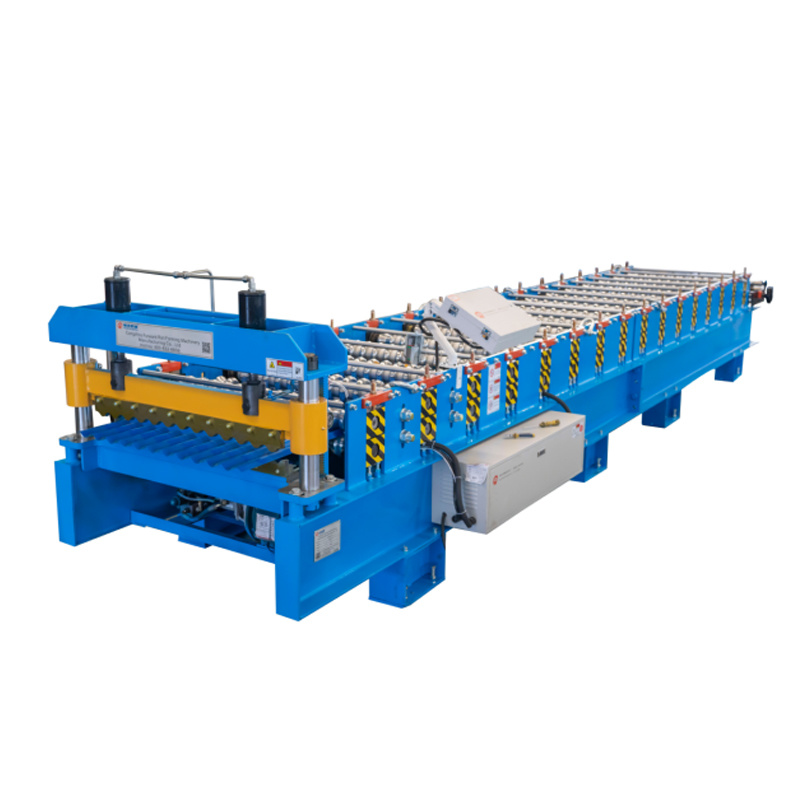Unlocking the Potential of Roll Forming Line Machines: A Comprehensive Guide

Roll forming line machines are essential tools in the manufacturing and processing of various metal products. These machines utilize a continuous bending operation to shape metal sheets into desired profiles, making them integral to numerous industries such as construction, automotive, and appliances. The roll forming process begins with a flat strip of metal, which is gradually passed through a series of rollers that progressively shape the metal into the desired configuration. This method of metal forming is highly efficient and can be tailored to produce a vast array of complex shapes.
One of the key advantages of roll forming line machines is their ability to produce long lengths of uniform profiles without the need for additional machining operations. This not only reduces production time but also lowers material waste. The accuracy and consistency of the shapes produced make them ideal for high-volume production runs, ensuring that manufacturers can meet demanding supply needs effectively.
In addition to efficiency, roll forming offers a level of flexibility that is crucial for modern manufacturing. Manufacturers can easily modify the tooling and rollers to create new profiles or adjust existing designs, thus allowing for rapid prototyping and customization. This adaptability is particularly beneficial in industries where design trends frequently change, such as the construction sector, where new building materials and styles emerge continually.
Another noteworthy aspect of roll forming line machines is their ability to work with a variety of materials, including steel, aluminum, and other metals. This versatility enables manufacturers to cater to specific customer requirements and produce components that align with varying performance standards and regulations. Moreover, advancements in technology have led to the integration of automation and digital controls within these machines, further enhancing their efficiency and precision.
Maintenance and operational considerations are also vital when working with roll forming line machines. Regular inspections and upkeep are essential to ensure smooth operation and to prolong the life of the equipment. Understanding the machine's components and troubleshooting common issues can significantly reduce downtime and enhance productivity.
In conclusion, roll forming line machines are a cornerstone of modern manufacturing processes, providing efficiency, flexibility, and precision. Their ability to produce high-quality metal profiles with minimal waste makes them invaluable across multiple industries. As technology continues to evolve, these machines will likely become even more sophisticated, further revolutionizing the way manufacturers approach metal forming and production. By understanding the mechanics and advantages of roll forming line machines, businesses can make informed decisions that enhance their operations and contribute to their success.
One of the key advantages of roll forming line machines is their ability to produce long lengths of uniform profiles without the need for additional machining operations. This not only reduces production time but also lowers material waste. The accuracy and consistency of the shapes produced make them ideal for high-volume production runs, ensuring that manufacturers can meet demanding supply needs effectively.
In addition to efficiency, roll forming offers a level of flexibility that is crucial for modern manufacturing. Manufacturers can easily modify the tooling and rollers to create new profiles or adjust existing designs, thus allowing for rapid prototyping and customization. This adaptability is particularly beneficial in industries where design trends frequently change, such as the construction sector, where new building materials and styles emerge continually.
Another noteworthy aspect of roll forming line machines is their ability to work with a variety of materials, including steel, aluminum, and other metals. This versatility enables manufacturers to cater to specific customer requirements and produce components that align with varying performance standards and regulations. Moreover, advancements in technology have led to the integration of automation and digital controls within these machines, further enhancing their efficiency and precision.
Maintenance and operational considerations are also vital when working with roll forming line machines. Regular inspections and upkeep are essential to ensure smooth operation and to prolong the life of the equipment. Understanding the machine's components and troubleshooting common issues can significantly reduce downtime and enhance productivity.
In conclusion, roll forming line machines are a cornerstone of modern manufacturing processes, providing efficiency, flexibility, and precision. Their ability to produce high-quality metal profiles with minimal waste makes them invaluable across multiple industries. As technology continues to evolve, these machines will likely become even more sophisticated, further revolutionizing the way manufacturers approach metal forming and production. By understanding the mechanics and advantages of roll forming line machines, businesses can make informed decisions that enhance their operations and contribute to their success.
Key words:
recommend News
Share



